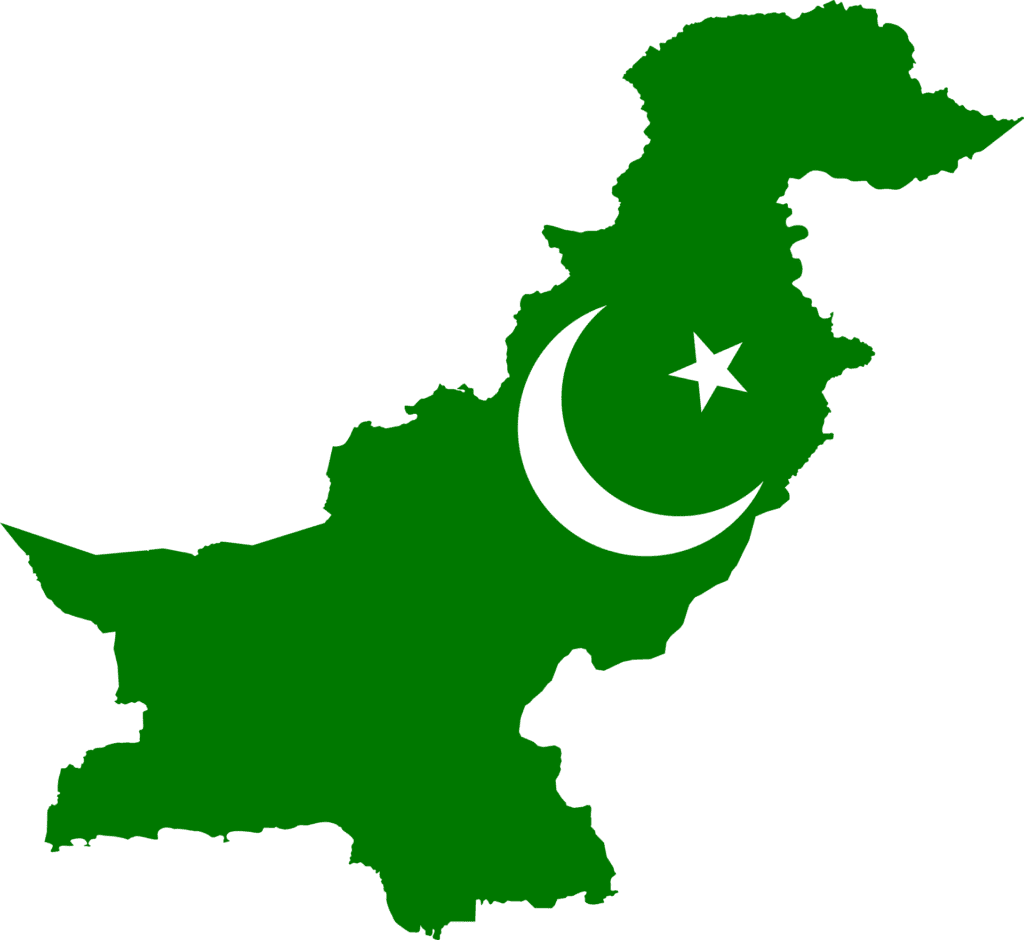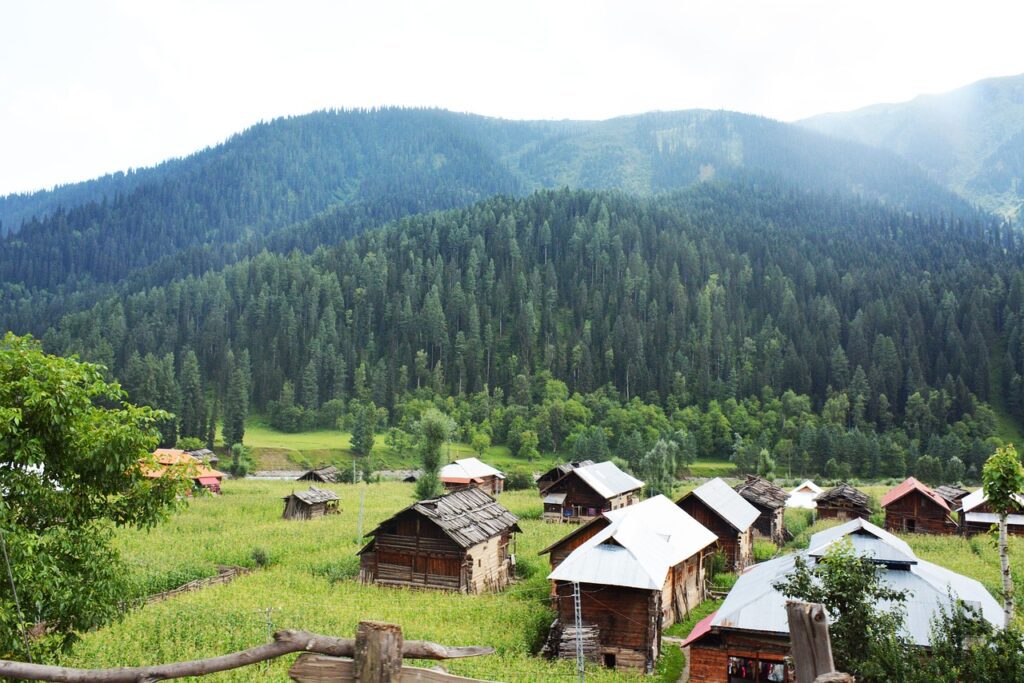Introduction to the Ideology of Pakistan (PDF) and its Meaning
Today, we are going to discuss the Ideology of Pakistan (pdf), you can read the whole article here or can download it in pdf. It is a very very hot topic in Pakistan Affairs subject of Pakistan. The Pakistan Affair is one of the compulsory subjects in the CSS and PMS exams. Let’s get started or download it in pdf.
Click Download The Ideology of Pakistan (PDF)

Pakistan is a nation founded on the ideals of Islamic values and principles, and it has a strong and proud tradition of being an Islamic Republic since its creation in 1947. Pakistan’s Ideology is based on the two-nation theory, which states that Muslims and non-Muslims in the Indian subcontinent are two distinct nations and must receive independent statehood. According to this theory, the Muslims of India are a separate nation by virtue of their culture, in their religion, their traditions are different, and their history, customs, and the most importantly religiously they are completely different nations.
The Heart of Pakistan’s Ideology
At the heart of the ideology of Pakistan is the idea of a homeland for the Muslims of the Indian subcontinent based on the Islamic principles of justice, equality, and liberty. The state of Pakistan is considered to be the embodiment of this shared goal of having a place for the Muslims of India to practice their religion and live their lives according to its precepts.
Pakistan and its constitution
Pakistan’s Constitution also guarantees freedom of religion, and ethnic, cultural, and linguistic diversity is respected and celebrated. By the same token, the Constitution also prohibits discrimination based on religion, gender, caste, or creed. Pakistan’s commitment to the principles of democracy and the rule of law is also enshrined in the Constitution, and the government is required to promote and protect the fundamental rights of its citizens. Additionally, the government seeks to ensure that all citizens can access education, health care, and other basic services on an equal basis.
The role of Islam in ideology of Pakistan (pdf)
Islam plays an important role in the ideology of Pakistan. Islam is base of ideology of Pakistan (PDF). As a Muslim-majority nation, Pakistan has always placed great emphasis on the principles of Islam, which are seen to be the foundation of the country. Islam guides the nation on a range of topics, such as economic, political, and social justice, which are all integral to the country’s core values.
Islam provides direction on how individuals should interact with one another and how they should behave in the public sphere. It outlines a number of responsibilities that citizens of Pakistan have, such as the obligation to pay taxes and abide by laws. Additionally, it emphasizes the importance of respecting the rights of others and treating all others with kindness and respect.
Islam also plays a role in the economic framework of Pakistan. The faith of Islam provides guidance on how to manage resources responsibly, as well as on how to allocate resources in a fair and equitable manner. The principles of Islam also dictate that wealth should be shared among the whole society, and not just amongst the wealthy.
The principles of Islam also heavily influences the social structure of Pakistan. The faith of Islam promotes the concept of tolerance, which is the acceptance of each other’s differences in culture, beliefs, and values. This helps to foster peace and cooperation, which are essential to the development of a healthy and prosperous nation.
Overall, Islam plays a pivotal role in the ideology of Pakistan. The faith of Islam serves as a guiding light for the nation, providing direction on how to build an ethical, just, and equitable nation. By abiding by these principles, Pakistan can become a strong and prosperous nation, and its citizens can experience a better quality of life.
The Role of Education in Ideology of Pakistan
Education plays an integral role in the ideology of Pakistan (pdf). As the nation strives to become a prosperous and developed country, providing quality education to its citizens is essential. Education helps to create an informed and knowledgeable populace, which is essential for a modern society.
Education in Pakistan is seen as a fundamental right, and it is provided free of charge to citizens up to the higher secondary level Government of Pakistan is trying to provide free education up to graduation but it is a difficult task due to a lack of spending on Education. Education not only helps to develop skills and knowledge, but it also helps to foster values and attitudes. The education system in Pakistan aims to produce citizens who are well-rounded individuals with a strong sense of loyalty to their nation.
Education also serves to unite the peoples of Pakistan. By providing a common language and understanding, education helps to bring people of different backgrounds together and promotes understanding and tolerance. It also encourages civic engagement, allowing citizens to take part in the political process and have a say in the nation’s future.
Education is also key to the economy of Pakistan. By providing the skills and knowledge needed for a modern economy, education can help to create jobs, reduce poverty, and generate wealth. Education also helps to create a skilled workforce, which is essential for a competitive and innovative economy.
Overall, education plays a crucial role in the ideology of Pakistan (pdf). By providing quality education to its citizens, Pakistan can become a strong and prosperous nation, and its citizens can experience a better quality of life.
The Nationalism and Pakistan’s Ideology
Nationalism plays an important role in the ideology of Pakistan. Nationalism is defined as a sense of shared identity and loyalty to a nation, and it is a fundamental source of unity in any nation. In the case of Pakistan, nationalism is a source of pride and identity and is seen as the cornerstone of an independent and self-reliant nation.
The principles of nationalism are enshrined in the Constitution of Pakistan. It outlines a number of rights, such as freedom of expression, equal rights for all citizens, and protection of religious, cultural, and linguistic diversity. These rights are all seen as essential components of Pakistani identity and are seen to be protected by the Constitution.
Nationalism also encourages citizens to take part in the political process. By participating in the political process, citizens can help to shape the future of the nation, and their voice can be heard in the decision-making process. This helps to create a sense of ownership and responsibility for the nation, and it promotes unity and cohesion.
Nationalism also serves to promote patriotism and loyalty to Pakistan. By promoting a shared identity and loyalty to the nation, citizens are more likely to take part in nation-building activities, such as public service and volunteerism. This helps to create a more cohesive and prosperous nation.
Overall, nationalism plays an important role in the ideology of Pakistan. It serves as a source of unity and identity, and it encourages citizens to take part in the political process and build a strong and prosperous nation.
Meaning of Pakistan and Its Ideology
What is the Meaning of Pakistan? The Meaning of Pakistan is “The Land of Pure” or “The Land of Purity”. The word Pakistan is derived from two Persian words, “PAK” and “ISTAN”. “PAK” means pure and “ISTAN” means The Land or The Place. This name was coined by Pakistan Movement activist “Choudry Rehmat Ali” in 1933 when he published his pamphlet “Now or Never”.
The country Pakistan came into being on the map of the world on the 14th of August, 1947. It is located in south Asia. It is the fifth largest country by population in the world and 2nd most populous Muslim country after Indonesia. Its population is 242 million. It has the sixth-largest standing armed forces.
Geography of Pakistan Area of Pakistan
Pakistan is located in the West of South Asia. The total area of Pakistan is 881,913 km2 . It is the 33rd largest country in the world by area. India is located in the East, while in the West its border is connected to Afghanistan. In the North, it is connected to China while in South West it is bordered by Iran. In the South, it has a coastline with the Arabian Sea. The total length of the coastline is 1,046km and the total land border with other countries is 6,774 km.
The length of the border with china is 523 km, while the length of the border with India is 2,912 km. pakistan’s border with Iran is 909 km and the land border with Afghanistan is 2,430 km.

Population of Pakistan
According to the census 2017, the total population of Pakistan is 213.2 million, which means 21 crore and 32 lacs. In full figures, the population of Pakistan is 213,222,917. Pakistan is the world’s fifth most populous country. Its population is divided into urban and rural populations. However, most of the population lives in rural areas. Almost 65 % of Pakistanis live in villages. Therefore, the urbanization rate is very low in Pakistan as compared to the world. Sources: Wikipedia
This population includes the four provinces, Azad Jammu and Kashmir and Gilgit Baltistan. Punjab is the largest province by population. Its population is more than half of the population of Pakistan.
Pakistan’s population is world youngest population in the world. 40 percent of total population is under the age of 15 years. However, only 3.7% are above 65 years of age. Therefore, the median age of the country is 19 years.
Click on the link to read more articles about CSS and PMS exam. If you have problems about the how much the exam will be difficult, then download all the past papers you need in one place.
